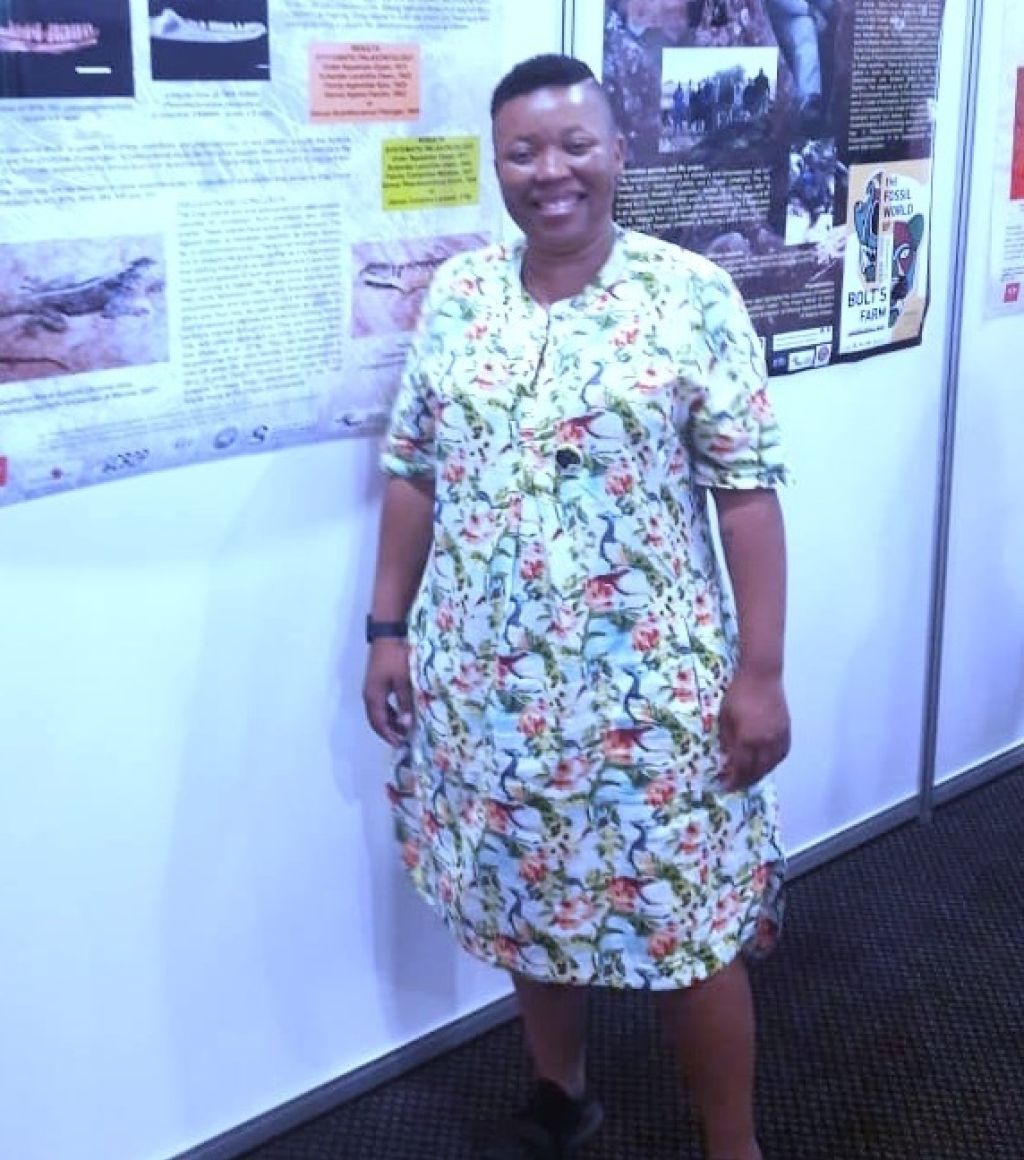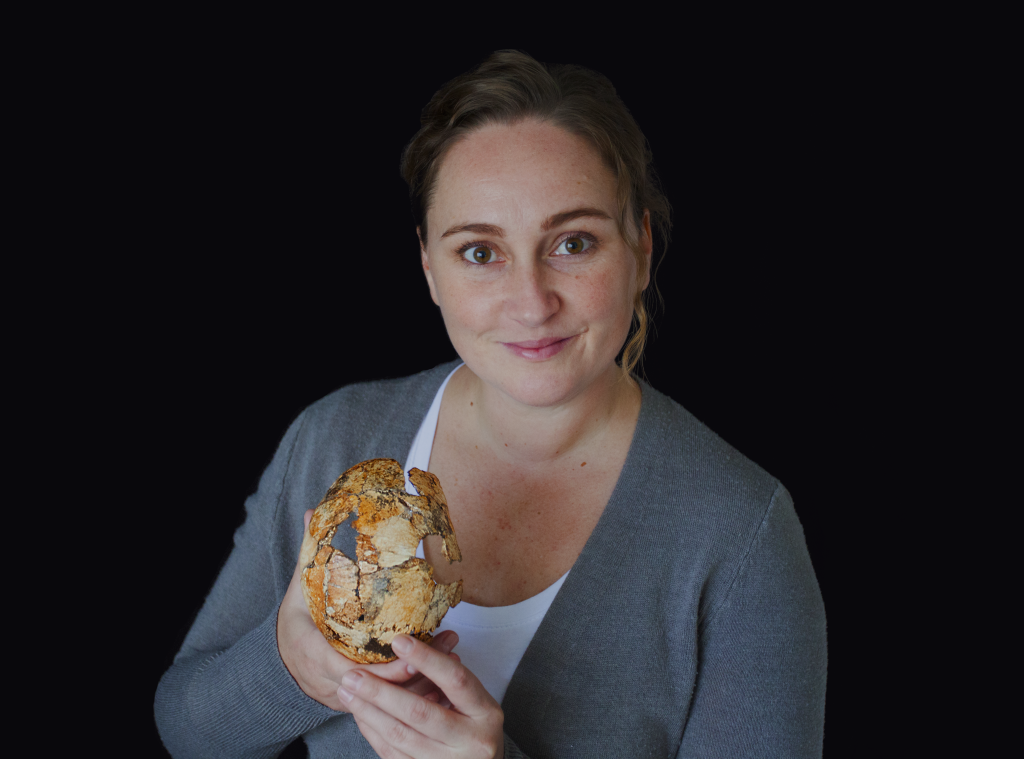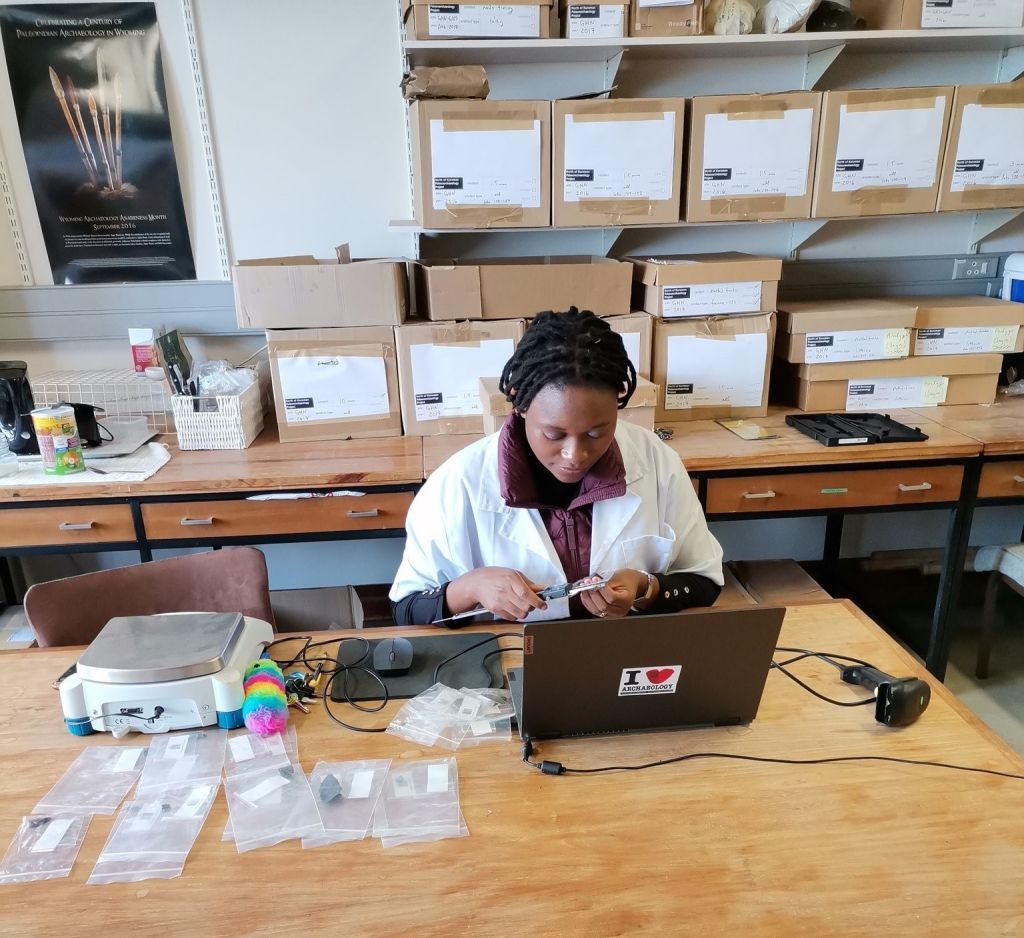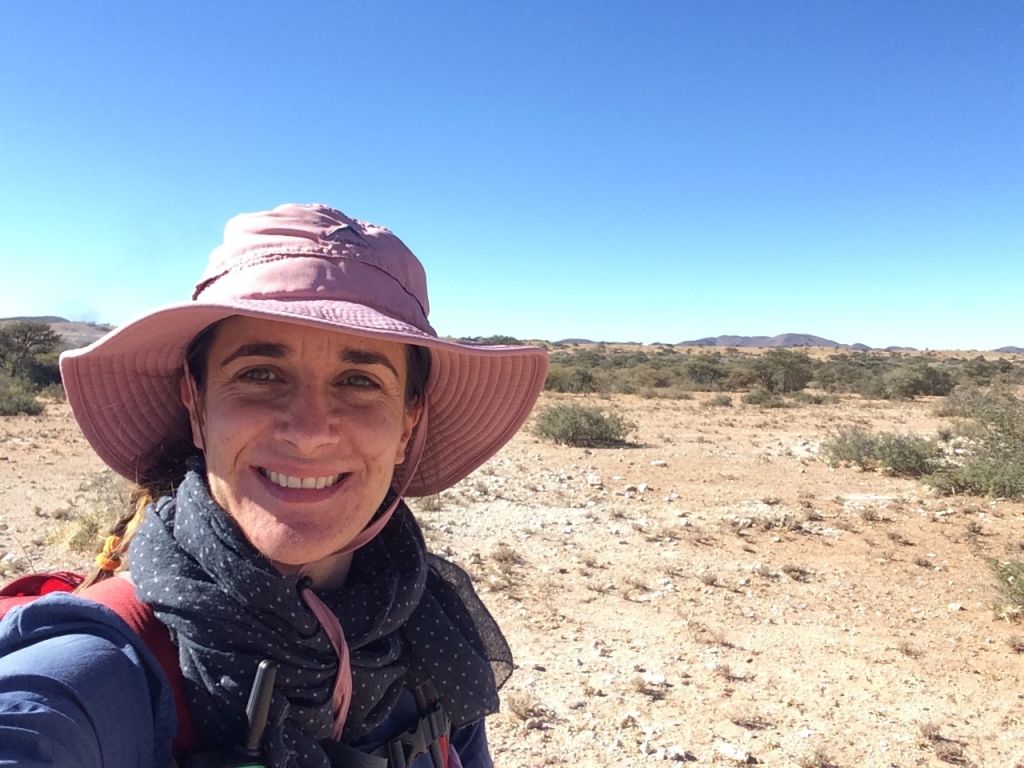How to break new ground: we hear from women in the palaeosciences
A more diverse cohort of young scientists is emerging in the palaeosciences. To celebrate #WomensMonth, we’re turning the spotlight on some of the many remarkable women who are helping us understand the mystery of our own origins. They chatted to us about their proudest moments and the challenges they face.
Dr Nonny Vilakazi, palaeontologist

“I have always had an inquisitive mind; [I’m] always trying to solve puzzles. The palaeosciences are all about filling in the blanks and trying to make pieces of information fit together like a puzzle. So, becoming a palaeontologist came naturally to me, as I wanted to try to answer some questions about how the universe operates. Again, as a curious individual, I always wonder where we come from, how we came to be.
“My proudest moment in my career so far was being able to identify and describe the first fossil fang found at Bolt’s Farm in the Cradle of Humankind. As the only palaeoherpetologist in the country (or Africa for that matter), that moment defined my purpose in the sciences. This illustrated to the world and Black women, in particular, that it is possible to rise above your circumstances and shine!
“Palaeontology is a male-dominated discipline, so you are expected to work extra hard as a woman to prove your worth and intelligence. It becomes trickier when you are a Black woman.
“I am a resilient woman who doesn’t bow to unnecessary pressures and mediocrity. I always tell myself that I’m here for a reason; to teach others that dreams do come true and we, too, are capable of being scientists. Wear your crown with pride and confidence. We don’t fail … we learn!”
Stephanie Baker, palaeoanthropologist

“My proudest moment is being part of the team that announced the oldest Homo erectus specimen in the world!
“There are so many [challenges I have faced in this field], not only as a woman, but also as a mother. I find the expectations of women are so much higher in the sciences. We are expected to be 100% present for work; 100% present as moms; 100% present as housekeepers. And all the while smiling as we try to juggle these many full-time jobs.
“Just remember: You can do it. Just don’t let the negativity and politics detract from your goal. Your worth is your own to determine.”
Precious Chiwara-Maenzanise, PhD student, University of Cape Town

“From a young age, I have been interested in the past and how people came to be. That interest turned to passion as I studied archaeology during my first year at the University of Zimbabwe.
“Women are drastically underrepresented in the palaeosciences, so I would advise women to join us and pursue a career in archaeology and palaeosciences. This is an opportunity to do stimulating and meaningful work. To rise as a young woman in this space, it’s crucial to build up your confidence and stand up for yourself.
“Organisations and funding bodies should offer more for advancing women fellows. This will help to retain more women in the sciences.”
Dr Robyn Pickering, geologist
“I was fascinated with rocks as a child; I still am! I have wanted to know more about rocks for as long as I can remember.
“My proudest moment was being appointed as a lecturer at UCT [the University of Cape Town] in 2015. I was coming back to South Africa after a decade overseas and diving into tertiary education during a time of enormous upheaval and change in my life.
“Pick your projects and supervisors carefully – choose something you are genuinely interested in and someone who treats you with respect, is generous and advocates on your behalf. Be strategic.
“Women are almost always immediately underestimated [in this field]. I’ve dealt with these challenges by calling out sexist behaviour and upskilling myself, both in field skills and difficult-conversation skills.”
